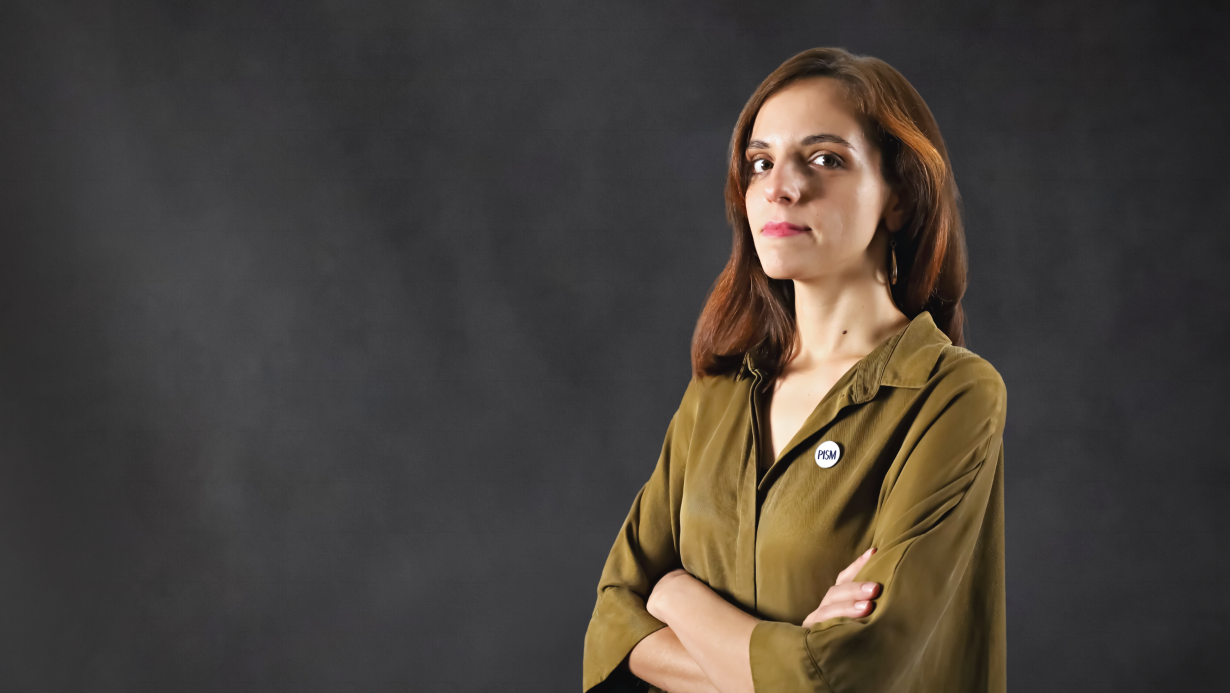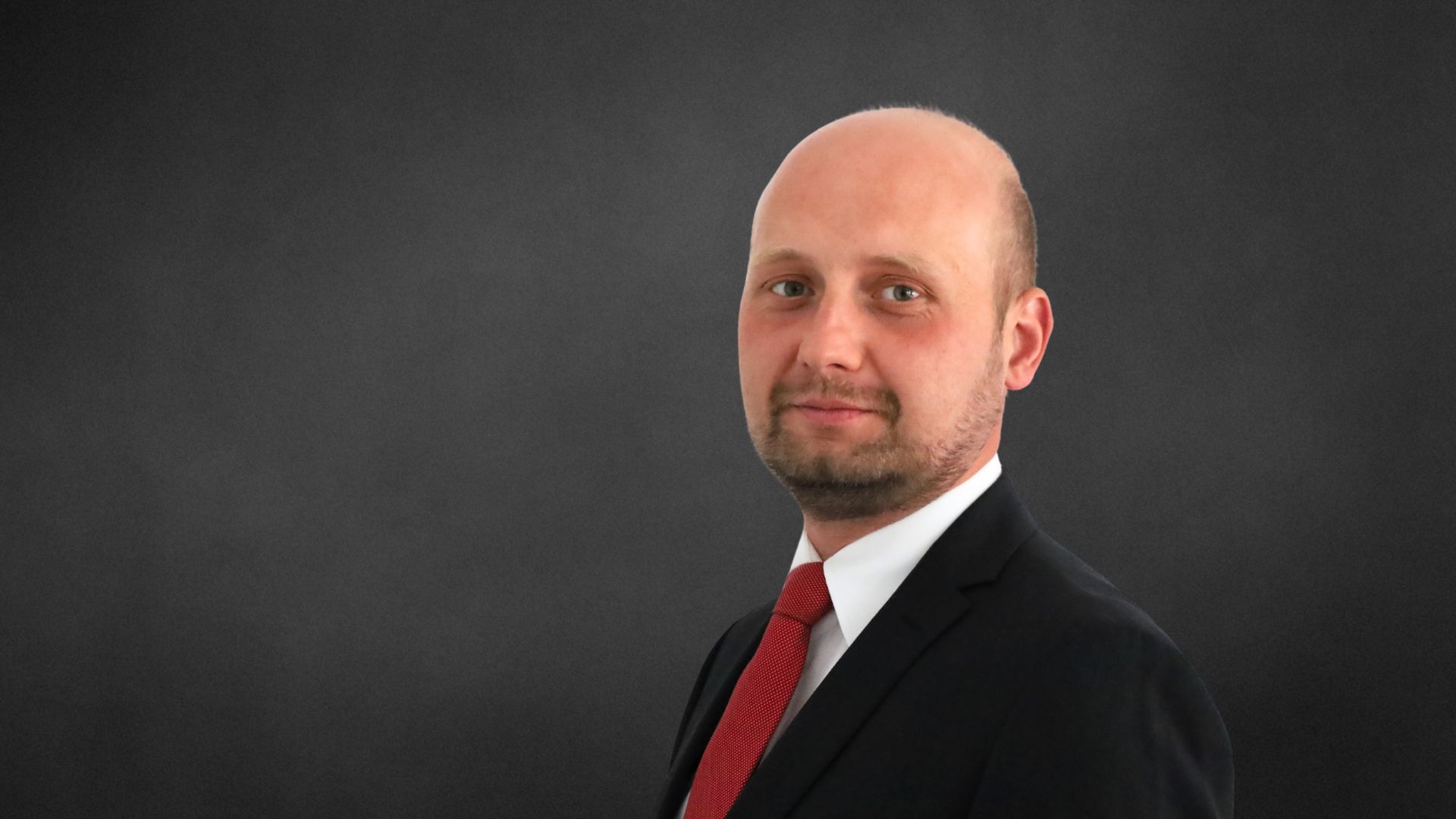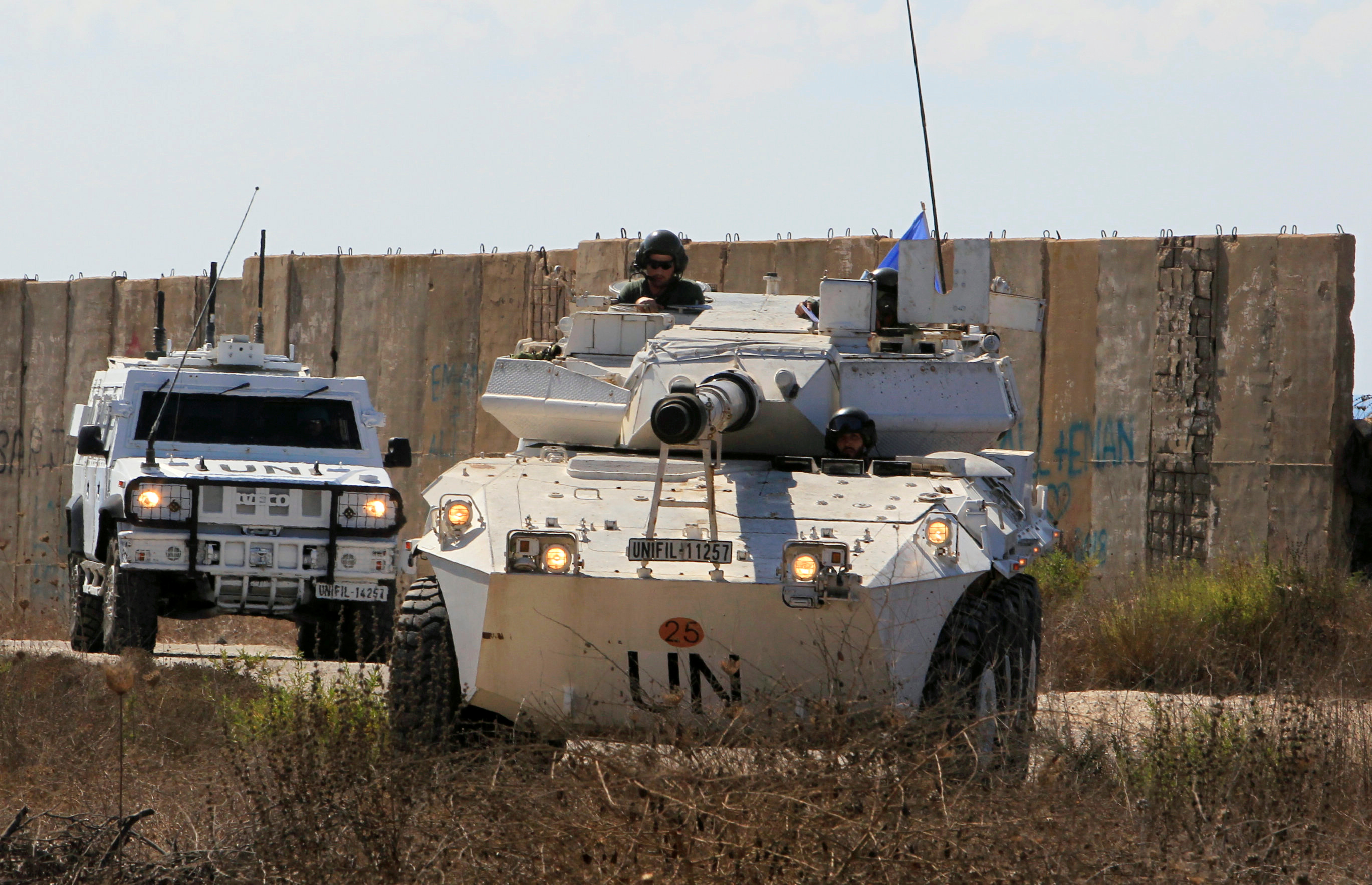UN Peacekeeping Agendas and Operations Threatened by Middle East Escalation
In the ongoing military operations in Palestine, Israel, and South Lebanon, the number of incidents involving UN peacekeepers and agency personnel is rising. In Gaza alone, the death toll of UN personnel has already reached 237, higher than in any previous conflict. The weak pressure on Israel and insufficient condemnation of the attacks by the West lead to sharp criticism by developing countries of appeasement of Israeli actions. The weak response also undermines international law and could weaken the protection of UN staff in other conflicts, hampering the organisation’s work.
(2).png) Mohamad Torokman / Reuters / Forum
Mohamad Torokman / Reuters / Forum
UN Agencies and Missions in the Middle East
Currently, three peacekeeping missions are operating in the region: UNTSO, UNDOF, and UNIFIL. Established in 1949, the UNTSO mission monitors compliance with the 1949 truce on Israel’s borders with its neighbours. UNDOF, composed mainly of military staff, oversees the separation of Israeli and Syrian forces in the Golan Heights after the 1973 war. The most important in the current context is UNIFIL, which has been operating since 1978 (it has about 10,000 troops, including 213 from Poland). Its purpose is to prevent clashes between the armed forces of Israel and Lebanon, as well as to provide humanitarian aid and support the Lebanese government in restoring complete control over the south of the country (in practice, it means removing Hezbollah from there). It has repeatedly averted the escalation of tensions between Hezbollah and Israel through the so-called tripartite mechanism, which allows talks between Lebanon and Israel (the countries have no direct contact) on a ceasefire or violations of the contested border. It has also supported internally displaced Lebanese and conducted demining operations.
In the realm of humanitarian support, the most active is UNRWA, an agency created in 1949 to assist Palestinian refugees. Some 5.9 million Palestinians remain in its care, including about 1.4 million from Gaza at present. It runs refugee camps, schools and health facilities and donates food and humanitarian aid. Until 2024, it was funded primarily by the U.S., Germany, and the EU. Its activities are complemented by the High Commissioner for Refugees (UNHCR), which helps refugees from Syria (more than 4 million) and Lebanon (about 300,000), among others.
Criticism from Israel
As of 7 October 2023, UNRWA and UNIFIL have come under unprecedented criticism from Israel. In its view, the maintenance of Hezbollah’s operational capabilities indicates UNIFIL’s ineffectiveness. It cites Hezbollah’s network of tunnels near the mission’s bases and its weapons hidden in an area where UNIFIL was supposed to restrict the activities of paramilitary organisations. UNIFIL’s low effectiveness in this regard stems from its mandate. It does not have direct authority to combat their structures in the assigned zone actively but only to provide support to the Lebanese government and army. The weakness of the latter has contributed to the consolidation of public support for Hezbollah and its domination of Lebanese politics, which results in a lack of decisive action by the authorities to remove it from the south of the country and hinders UNIFIL’s task. Hezbollah and the people who support it in southern Lebanon have been attacking soldiers, blocking patrols and access to sites with potentially illegally stored weapons. Citing UNIFIL’s ineffectiveness, Israel has repeatedly attacked its forces over the past few weeks. In October, the Israeli military (IDF) raided one of its bases, damaged two observation towers and injured at least 4 UNIFIL personnel. In addition, Prime Minister Netanyahu called for the mission’s withdrawal of the mission, which was firmly rejected by participating states.
Since the start of the war, Israel has also repeatedly challenged UNRWA’s impartiality, complicating its humanitarian work. It has accused its 19 employees of involvement in the 7 October Hamas attack on Israel and 450 of links to terrorist organisations. As a result, 17 countries and the EU withheld funding to the organisation, though most, except the U.S. and partly Switzerland, restored it in March and April 2024. An investigation by the UN Office of Internal Oversight led to the expulsion of nine of the accused. However, UNRWA stressed that the evidence remained under Israeli control, making independent verification impossible. In addition, in May this year, Israeli extremists set fire to UNRWA’s Jerusalem headquarters, which was preceded by numerous attacks on the organisation’s staff, including threats with weapons. On 29 October, Knesset passed a law banning UNRWA’s operations in the state, which will also prevent it from working in the Palestinian territories. UNRWA’s credibility has been hit by the use of some of its resources by Hamas through intimidation. According to the organisation’s figures, 237 of its employees have been killed in the Gaza Strip so far, mostly in Israeli attacks, while 464 incidents have affected UNRWA facilities and the people in them. As a result, 190 of the agency’s facilities have been damaged, and of the people who have taken refuge in them, at least 563 have been killed and 1,790 injured.
The Role of Agencies and Missions from a UN Perspective
The special status of UN agencies and peacekeepers derives from Security Council (UNSC) resolutions, state practices and international humanitarian law (IHL), particularly the Geneva Conventions. Since UN entities are not, by definition, parties to conflicts, their facilities and personnel must be treated as civilian. They are, therefore, inviolable and untouchable, including the peacekeeping soldiers. They can only be considered combatants when they are actively participating in hostilities. Beyond this exception, attacks against them are a severe violation of IHL and constitute a war crime, as confirmed, among other things, by Article 8(2) of the Rome Statute of the International Criminal Court. The very violation of the inviolability of peacekeepers (using them as “human shields”) was the basis for the International Criminal Tribunal for the former Yugoslavia to rule that Bosnian Serb leaders Radovan Karadzic and Ratko Mladic had committed war crimes.
UN agencies like UNRWA and UNHCR have a higher status than NGOs, which gives the countries supporting them the best guarantee that donated funds will support their stated goals. It also allows them to conduct long-term operations, something other organisations often cannot do. On the other hand, peacekeeping operations have primarily been effective in reducing the likelihood of conflict recurrence, frequently also performing essential support functions, such as protecting civilians, supporting the building of state institutions, and participating in disarmament and demining. States are, therefore, generally supportive of their activities, although they advocate adopting mission mandates that are realistic and tailored to the circumstances and providing adequate equipment and funding. They also call on the UNSC to create action plans and exit strategies when establishing a given operation because prolonged stationing of peacekeeping operations—as in the Middle East—generates high costs and undermines their effectiveness. In doing so, they call for more robust support for the UNSC’s long-term efforts to resolve conflicts and eliminate their causes politically. In recent years, however, this has been hampered by increased disagreements among the Council’s permanent members that have the right to veto its decisions.
Conclusions
Despite the UN’s key role in promoting stability in the Middle East, the current escalation threatens the continuation of its work in the region. Israel’s attacks on UN staff are linked to its perception of the agencies and missions as institutions that support terrorism (especially UNRWA) or impede its fight against terrorism (UNIFIL). Isreal’s criticism has had a lasting effect, for example, in reducing funding for UNRWA. The agency’s operations, however, remain essential for the delivery of humanitarian aid in Gaza and the functioning of some of the population in the West Bank, while UNIFIL is essential for maintaining communications between Lebanon and Israel. UN peacekeepers remain the most reliable observers of events in Lebanon and the Golan Heights and can support de-escalation efforts by mediating between the Lebanese and Israeli armies. Therefore, their presence is beneficial from the perspective of the international community. In addition, participation in UNIFIL is one of the few tools the EU states use to engage in the security area of their southern neighbourhood, which undermines the narrative promoted by Russia that they are focused exclusively on conflicts that are important from the perspective of Western interests.
Debate about the future of peacekeeping operations, how to increase their effectiveness, and pressure for political change to resolve conflicts is advisable but does not justify violating the inviolability of mission premises or attacks on their members. This also applies to UN agencies. Concern for their status is in the interest of Poland and other countries promoting respect for international law, especially in the context of efforts to mobilise international criticism of Russian aggression against Ukraine as an example of its violation and the participation of the Polish contingent in the UNIFIL mission.





(1).png)
.png)